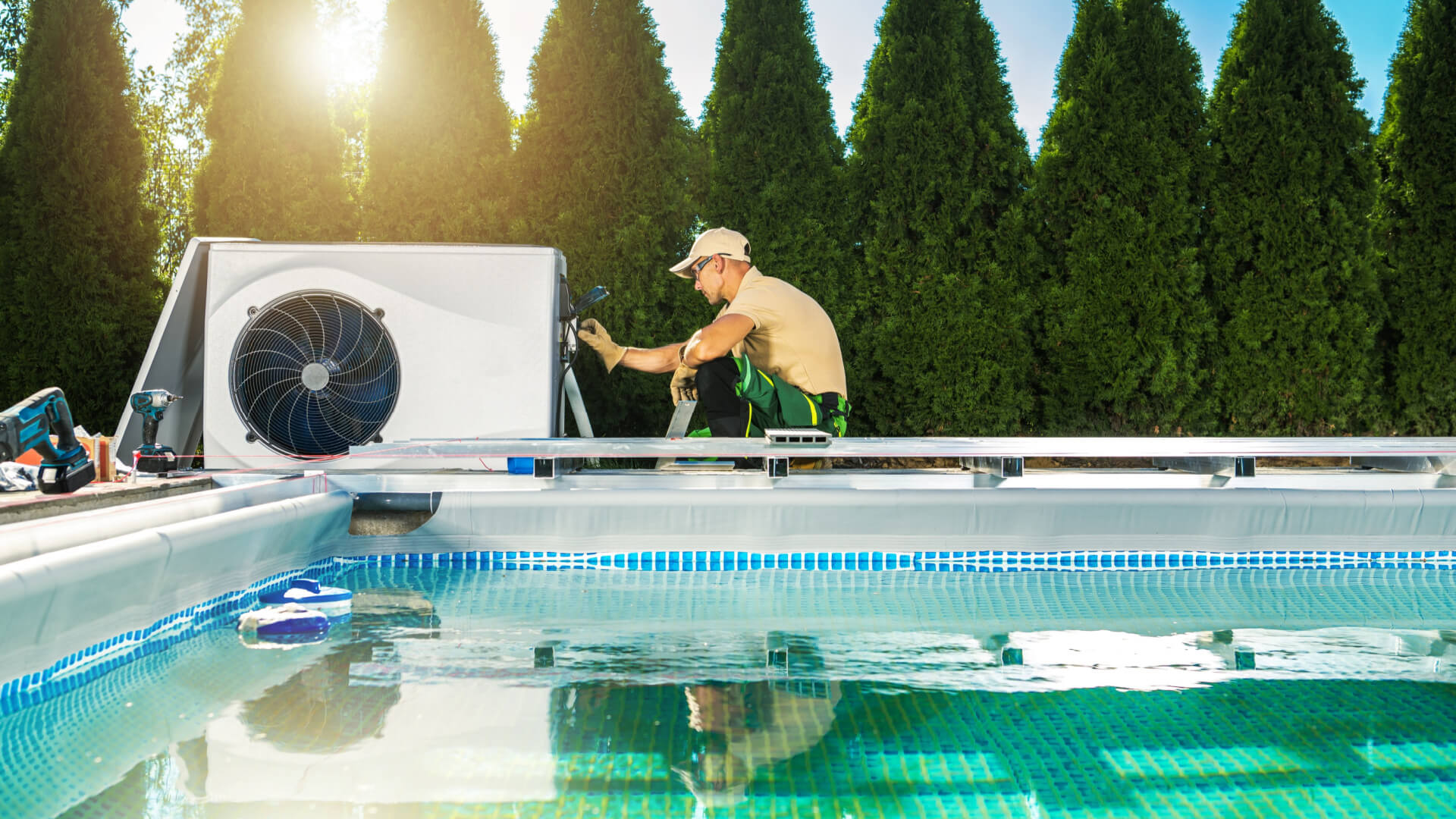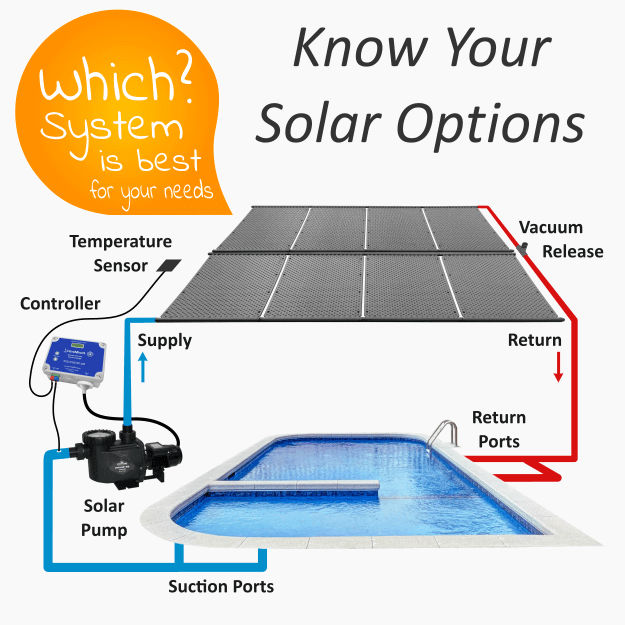Efficient Strategies for Pool Heizen
Understanding Pool Heizen Systems
When it comes to extending your swimming season, understanding **pool heizen** systems is crucial. These systems not only maintain the ideal water temperature but also ensure energy efficiency. There are various methods available for pool heating, including solar heaters, gas heaters, electric heaters, and heat pumps. Each option comes with its own set of advantages and disadvantages, depending on your specific needs and the climate in your area. It’s essential to consider factors such as installation costs, energy efficiency, and environmental impact when choosing the right system.
Solar Pool Heaters
Solar pool heaters use the sun’s energy to heat the water in your pool, making them one of the most environmentally friendly options available. Most solar heating systems consist of solar panels installed in a sunny area, often on rooftops. These systems can significantly reduce heating costs and are usually simple to maintain. For example, if you live in a region with consistent sunlight, investing in a solar heating system can lower your energy bills while enhancing your swimming experience. Remember that solar heaters may not work efficiently when the sun isn’t shining, necessitating a backup heating system for cloudy days.

Gas and Electric Pool Heaters
Gas and electric heaters provide quick heating solutions, ideal for pools used intermittently or in cooler climates. Gas heaters offer rapid heating, warming your pool in a matter of hours. An electric heater, while slower, is typically more energy-efficient for prolonged use. However, both options can have significantly higher operational costs compared to solar systems. Think about using a gas heater as a complementary system to another heating solution if your climate fluctuates or you have spontaneous pool parties.
Heat Pumps: A Popular Choice
Heat pumps have become an increasingly popular choice for **pool heizen** due to their energy efficiency and eco-friendly operation. They work by extracting heat from the air and transferring it to the pool water, making them an energy-efficient way to heat your pool. Because they rely on ambient air temperature, their efficiency can decrease in colder temperatures. However, modern technology has made most heat pumps capable of functioning reasonably well, even in cooler weather.
How Heat Pumps Work
Heat pumps operate using a refrigerant that changes states in a closed-loop system. The pump absorbs heat from the outside air and transfers it to your pool water. Since they use minimal electricity compared to traditional electric heaters, heat pumps can significantly drop your overall energy costs. For example, a properly sized heat pump can produce up to five times more energy in heating your pool than it consumes, providing a quick return on investment.

Choosing the Right Size Heat Pump
Selecting the appropriate size for your pool heat pump is crucial to ensure efficient heating. Generally, the size needed depends on the pool’s volume and the desired temperature increase. A common approach might involve choosing a heat pump that can raise the pool temperature by about 1°F per hour. A pool professional can help determine the best sizing, ensuring optimal performance for your specific pool needs.
Benefits of Regular Maintenance
Proper maintenance of your pool heating system significantly extends its lifespan and enhances its efficiency. Regularly checking and cleaning filters, inspecting for leaks, and maintaining optimal water chemical levels can prevent costly repairs down the line. **Pool heizen systems** require care to function at their best, regardless of the type—be it gas, electric, solar, or a heat pump. For example, scheduling semi-annual professional inspections can help spot potential problems before they escalate, leading to a more enjoyable swimming experience.
DIY Maintenance Tips
Performing basic maintenance is often simple yet effective. Regularly skim leaves or debris from your pool, check the water level, and keep surrounding areas clear. Additionally, for heat pumps, ensure that the unit’s air intake is not obstructed. Simple tasks like cleaning filters and monitoring chemical levels can prevent more significant issues while keeping your heat pump running efficiently.
Professional Service: When to Call
Even with a solid DIY approach, there are times when professional service is warranted. If you notice unusual noises from your heater or fluctuations in temperature, it might indicate the need for professional inspection. Troubleshooting possible electrical issues or gas leaks should always be entrusted to certified technicians to ensure safety. Regularly assessing your system’s entire functionality allows you to enjoy pool heating when you need it most without interruption.
Conclusion
In summary, investing in effective **pool heizen** systems will undoubtedly enhance your outdoor leisure experience. With a variety of options available, from **solar heating** to modern heat pumps, understanding each system’s pros and cons will help you make an informed choice. Regular maintenance further guarantees your chosen heating method will perform optimally. Utilizing these insights can lead to a more enjoyable and comfortably heated swimming pool year-round.
Key Takeaways
- Choosing the right heating system is crucial for efficiency.
- Solar heaters are eco-friendly but may require a backup system.
- Heat pumps provide an energy-efficient heating solution.
- Regular maintenance can significantly extend your heater’s lifespan.
- Seek professional assistance when dealing with more complex issues.
FAQ
1. How long can pool heating systems extend the swimming season?
Depending on the type of heating system used, it can extend the swimming season by several months. Solar heaters, for instance, can maintain comfortable temperatures during warmer months, while gas and electric heaters can allow swimming year-round in many climates. It’s important to choose a system that aligns with your local weather conditions.
2. Are heat pumps worth the investment?
Yes, heat pumps are generally worth the investment due to their energy efficiency. They consume less electricity compared to traditional electric heaters and often result in lower operating costs. While the initial purchase price may be higher, the long-term savings on energy bills can make up for this expense over time.
3. Can I install pool heaters myself?
While some homeowners may attempt a DIY installation, it’s often best to hire a professional, especially for electric or gas heaters. Inadequate installation can lead to inefficiency or even safety hazards. Opting for professional help ensures proper installation and compliance with local codes.
4. How can I optimize my pool heater’s performance?
To optimize performance, regularly maintain the heater as recommended, use a pool cover to retain heat when not in use, and consider installing a solar blanket or thermal cover. Keeping debris out of the pool and measuring chemical levels are also important for overall efficiency.
5. What temperature is ideal for swimming pools?
The ideal swimming pool temperature is typically around 78°F to 82°F (25°C to 28°C). However, preferences vary, and some may prefer warmer water for comfort. Using a thermometer can help maintain your desired temperature range, depending on usage patterns and outside conditions.
